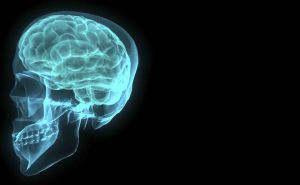"Most would assume that a benign tumour would cause less distress in patients but these results show at early diagnosis this is the opposite. Participants with benign tumours showed substantially elevated distress relative to patients with a malignant tumour," lead researcher Dr Maria Kangas said.
Researchers studied groups of patients diagnosed with a range of brain tumours and assessed their mood, stress and overall quality of life to measure the effects of radiotherapy on the psychosocial cognitive functioning in adults.
Though patients with a benign brain tumour did report a decline in stress following radiation therapy (as did malignant brain tumour patients) these results are important to understand the range of emotional needs of patients with brain tumours.
"Quite often people feel that having a benign tumour is not as much of a problem but this isn’t the case. Both benign and malignant tumors can be life-threatening and can cause brain function impairments as well as psychosocial problems," Dr Kangas said.
Another interesting finding from the research was the difference in stress levels between patients with tumours in the left hemisphere of the brain compared to right hemisphere brain tumours.
"We found that patients with left hemisphere tumours were more susceptible to experiencing elevated stress and mood disturbances. This makes a lot of sense, as left hemisphere effects how we respond emotionally," Dr Kangas said.
"These findings highlight the importance of screening for psychosocial and cognitive disturbances for patients with brain tumours undergoing treatment. It’s crucial to identify patients who may be at risk of experiencing acute and more prolonged problems."
According to the Brain Foundation, there are almost 1,400 new cases of malignant brain tumours in Australia with more than 1,200 people dying each year from malignant and benign brain tumours. The prevalence rates for clinical depression and anxiety have been found to be as high as 62.5 per cent in adults treated for brain tumours.
The Macquarie University Cancer Institute has just launched a new brain tumour clinic and say this research is vital to the improving treatment for patients with brain tumours.
"It is vital to integrate psychological research into our programs and this is an important study," Dr Andrew Davidson, lead clinician for neuro-oncology at Macquarie Cancer Institute, said.
"It’s really scary when someone develops a brain tumour. It is not enough for a patient to have an operation; we need to look after them as a whole person and help them to deal with the difficult issues they face both emotional and physical," Professor John Boyages, Director of the Macquarie University Cancer Institute (MCI), said.
"This is the advantage we have at the Macquarie University Hospital with a team of health professionals that includes a psychologist and expert nurses."
















